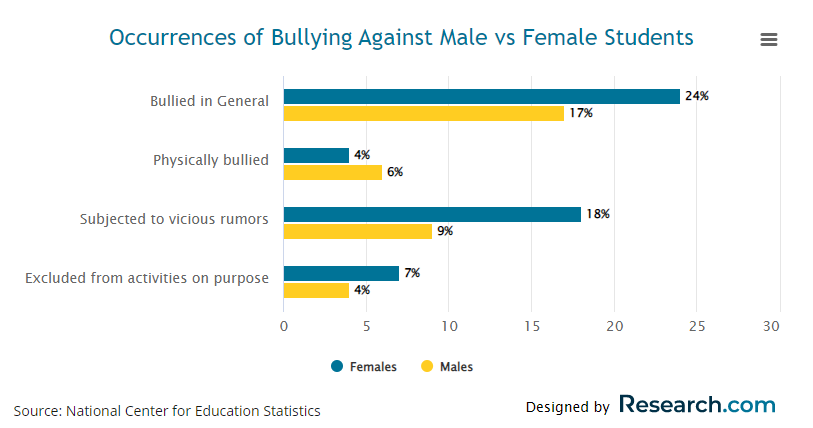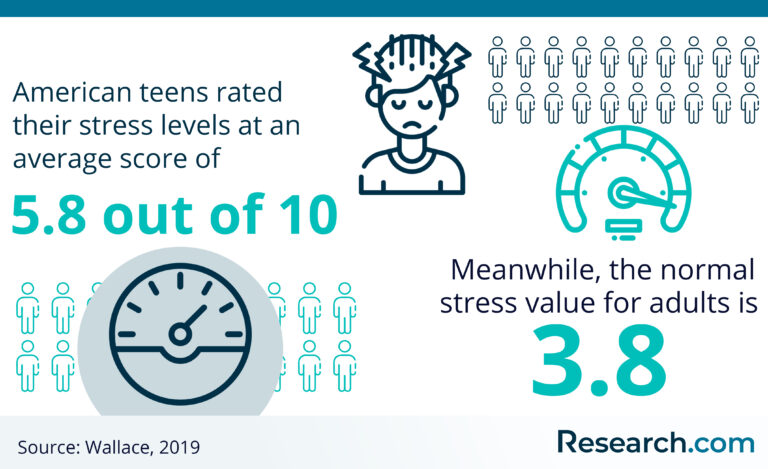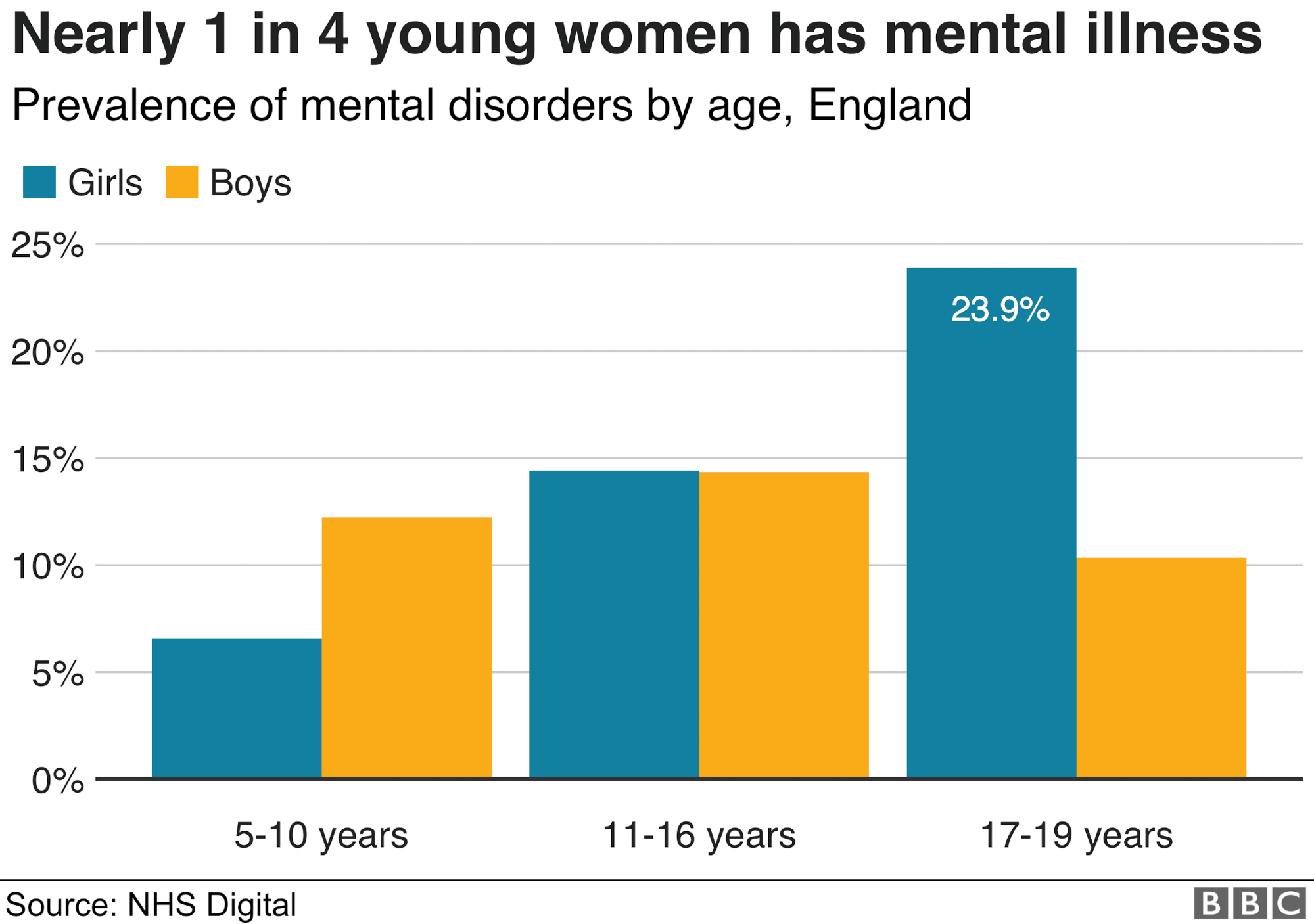
Moonpreneur

Update: This article was last updated on 8th November 2023 to reflect the accuracy and up-to-date information on the page.
Middle school is a critical transition period for children as they began to experience independence, growth, and challenges. However, some students may struggle to face the challenges of middle school.
According to a recent report, over 21% of US students are stressed about the future, finding a job, and more.
Middle school typically spreads over two or three years, and students can emerge from this period transformed. Parents must watch their children during this period, identify the challenges they are experiencing, and guide them.
Moonpreneur has listed some of the challenges Middle School students face:
1. Academic Pressure:

While middle school students are still young, they can feel pressure to do well in school, which is often influenced by the expectations set by older high school students.
Once they get into middle school, they are exposed to various competitions and academic challenges, such as preparing for the SAT, aiming for acceptance into a good college, and more.
Additionally, school staff may also create pressure on students with their daily activities and expectations. Students need to enjoy their middle school experience as it’s a unique opportunity that only comes once in a lifetime.
2. Expressing Individuality:
Some children find it challenging to exhibit their uniqueness among their peers. Here, parents can help by sitting with their children and creating a list of words representing their interests and passions.
This is a win-win situation for both parents and kids. Children find solutions to new challenges while parents gain a better understanding of their children’s areas of interest, which in turn can motivate kids to pursue their goals and express their individuality.
3. Social Issues:

Bullying and other antisocial behaviors are common social issues that many students encounter, particularly during their middle school years. This can be a tough time for students to discover and express their true selves, especially when subjected to negative peer behavior. There can be various reasons for bullying, but its impact can be severe on the victim’s mental health and well-being.

A report says more than 75% of US high school students have expressed fear, stress, boredom, anger, and even sadness in school. Parents can bail children out by teaching them how to deal with bullies and encouraging them to stand up for themselves.
Not just that, parents should also emphasize the importance of seeking help from a trusted adult or authority figure if the situation escalates or becomes too overwhelming.

4. Temptation:
As children grow up, they may become more experimental, and their curiosity may lead them to try smoking, drinking, or drugs. Parents must be vigilant to prevent their children from making these mistakes.
Indulging in frequent conversations with children about right and wrong behaviors can help them understand the potential consequences of their actions and make more informed decisions. By doing so, parents can instill hope in their children and equip them with the tools to deal with challenging situations.
5. Learning Abilities:

Middle school provides a great opportunity for students to expand their learning options. They may participate in scientific projects, labs, and other activities, many of which are done in groups. This allows students to develop communication skills while learning new things collaboratively.
However, some students may find this challenging, so parents should discuss with their children about adjusting to different learning styles.
Recommended reading : ROBOTICS FOR MIDDLE SCHOOLERS – TIPS AND EXAMPLES
6. Grades Worries:
One of the biggest worries for children in middle school is getting good grades. In some households, parents have high expectations, and when children fail to meet those expectations, they may face punishment.

According to a report, more than 61% of teens feel pressure to get good exam grades. Additionally, about 29% of American middle schoolers have felt pressure to look good, and 28% of students prefer to fit in socially.
However, if children are well-organized and motivated, middle school can be a breeze. The middle school allows students to become more independent and develop organizational skills.

7. Into The Online World:
Nowadays, almost every child carries their own phone, camera, and other devices. While giving children more responsibility can lead to extra expenses, parents must also be aware of when and how their children use their phones.
Parents need to establish clear guidelines and rules for phone usage, such as setting screen time limits and monitoring their children’s online activities to ensure their safety.
8. Disappointment:
Everyone has experienced a broken heart at some point, including during middle school. It can be difficult for parents to watch their children go through disappointments. So, the best solution is to provide children with the appropriate support and motivation to help them take their minds off any rejection. Also, encourage children to learn from failures or rejections and use them as stepping stones to success.
9. Communicating With Teachers:

Not every child is comfortable communicating with teachers and coaches, but with proper guidance from parents and practice, children can develop the confidence to express their ideas.
In middle school, teachers often encourage students in all aspects of academics. Talking with teachers about their life goals can help get more guidance from them. Communication with teachers and coaches also helps children build positive relationships and receive the support they need to succeed.
10. Difficult In Finding Healthy Tribes:
Every parent desires that their children stay clear of troublemakers and mingle with a positive peer group. The best way to achieve this is through two-way communication with children, sharing information, and taking in their perspectives.
Here are some additional tips for helping your child through middle school:
- Be supportive
- Listen to your child
- Set clear expectations
- Teach your child coping skills
- Encourage your child to be involved in activities
Conclusion
At the middle school age, children may experience insecurity and emotional vulnerability, which can cause significant distress. Parents must be vigilant and create a safe and supportive environment for their children to express their emotions freely.
Listening to their children and giving them enough time to recover can help them feel more secure and confident. In addition to academics, the middle school allows children to learn about the world around them and develop essential life skills.
Moonpreneur is on a mission to disrupt traditional education and future-proof the next generation with holistic learning solutions. Its Innovator Program is building tomorrow’s workforce by training students in AI/ML, Robotics, Coding, IoT, and Apps, enabling entrepreneurship through experiential learning.
















As a middle school teacher one of the biggest challenges students face is adjustment to a new learning environment, irrespective of the size of school.
As a parent of a middle schooler, how should I make my child feel comfortable?
Having a daily conversation with your child about their school experiences is essential. When preteens and teens sense your genuine interest in their academic lives, they are more likely to take their studies seriously. The quality of your communication with them can positively impact how well they listen and respond.
Thank you so much. You gave me some topics to discuss with parents to help support their children in school